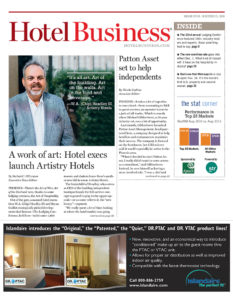WASHINGTON—The new overtime rule has left many in the hospitality industry wondering how to implement the changes without negatively impacting the bottom line. While some experts expect the updates to be detrimental to the the economy, others believe they are simply fair to employees and will benefit hoteliers in the long-term.
“It’s going to impact hospitality because if I’m having people who are managing employees who are making somewhere less than the new exempt threshold, they’re going to be eligible for overtime based on the minimum salary requirement,” said Adam Ochstein, founder and CEO of StratEx, a Chicago-based HR service company.
Effective Dec. 1., the new overtime rule more than doubles the old overtime salary threshold, increasing it from $23,660 to $47,476 annually for a full-year worker (adjusting the weekly salary threshold from $455 to $913). The last salary-level change was made in 2004. If implemented, this threshold would readjust every three years to reflect changes in average wages. Overtime protections will kick in for those who make up to the noted threshold and work more than 40 hours a week.
President Obama led efforts to update regulations governing the exemption for executive, administrative and professional employees back in 2014. The Department of Labor (DOL) in May finalized the new federal regulation.
“First thing I would do is audit my current payroll and see which of my salaried managers are making less than the threshold,” Orchstein said. Of those employees, analyze how many hours they’ve been working historically and project how many hours they may work in the future. Calculate if it makes sense to keep them salaried and eligible for overtime. If it’s not cost-effective, the better alternative may be to give them a salary increase instead of having to “worry about tracking overtime.”
“It may be much ado about nothing,” he said. “In some cases, it may be impactful from a labor-cost perspective.”
Don Landry, CHA, owner of Top Ten, an independent hospitality industry advisory company, said employers should be installing labor-management systems and software ahead of the rule implementation. “Management can achieve a one-year payback on integrated systems like Unifocus’ Watson to determine the correct productivity goals and using the technology to achieve,” he said. “No brainer.”
Not everybody is on board with the new rule. A bloc of 21 states is suing the agency, claiming it will increase employment costs of local governments and small businesses. Nevada Attorney General Adam Paul Laxalt filed the federal lawsuit in the U.S. District Court for the Eastern District of Texas.
“Longstanding federal law requires an overtime exemption for ‘bona fide executive, administrative or professional’ employees,” Laxalt said. “Ignoring this federal law, the DOL by executive fiat is forcing state, local and private employers to pay overtime to any employee who earns under a certain amount, regardless of whether that employee is actually performing ‘executive, administrative or professional’ duties. Worse, this unlawful rule will automatically increase the salary cutoff every three years, ensuring its pernicious effects last long after this president leaves office.”
The DOL failed to include a regional component to the rule. “I think what they didn’t consider, is some component of cost-of-living based on market demographics,” Orchstein said. “That would’ve been probably more well-received than just a blanket statement.”
Landry, in the lodging industry for more than 45 years, said the new overtime rule will “result in rising room rates.” “If rates can be raised at the same percentage as wage increases, margins could improve and profits increase,” he said. “That’s a big if. Flattening occupancies, OTAs and Airbnb may limit a hotel’s ability to raise rates. Margins will be under pressure, in the short term. Supervisor positions will be consolidated and span broadened. Development of select-over full-service will continue.”
The whisper before an expected change can be worse than the actual outcome. “Everyone was scared Obamacare was going to double and triple operating costs,” Orchstein said. “The reality is few eligible employees enrolled, and the operating income impact for organizations was smaller than everyone had anticipated. I think this is going to be very similar.”
“I think the employee wins because they’re going to be paid fairly based on hours worked,” he said. “I think the hotel and hospitality operator wins as well because anyone who is overworked is not going to perform well in their job.” HB


